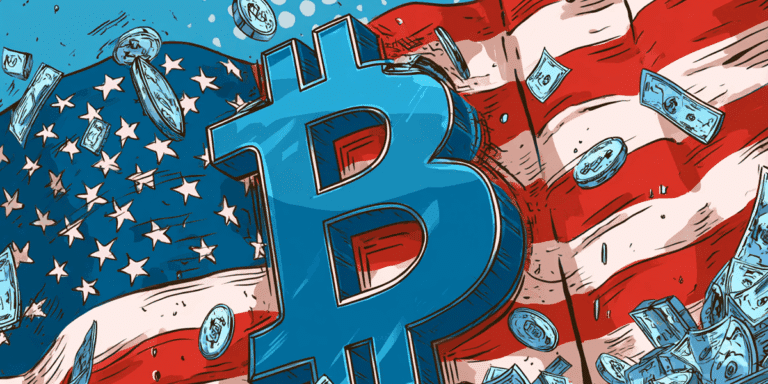US Group Proposes Bitcoin Tax-Free Zone to Boost Digital Economy
USABTC Proposes Tax-Free Digital Economic Zone for Bitcoin Trading in the US, Aiming to Boost Crypto Economy.
Key Takeaways:
- Policy group USABTC is proposing the creation of a Bitcoin tax-free Digital Economic Zone (DEZ) in the US.
- DEZ allows tax-free Bitcoin trading, taxed upon traditional currency redemption.
- The proposal outlines phased implementation, starting with the usage of the Exchange Stabilization Fund and collaboration with regulators.
USABTC, a non-governmental policy group, has formally proposed the creation of a tax-free zone for Bitcoin, aimed at strengthening America's position as a leading digital economy hub.
The proposed Digital Economic Zone (DEZ) would allow for the tax-free trading and accumulation of Bitcoin, with a tax applied only when Bitcoin is redeemed for traditional currency.
USABTC's Groundbreaking Proposal for a Bitcoin Tax-Free Economy
According to USABTC, this strategic approach could foster a “resilient and innovative” economic environment that leverages the potential of Bitcoin while maintaining the central role of the US dollar.
“Bitcoin has already challenged policymakers around the world to rethink traditional financial strategies,” the USABTC proposal states.
“The creation of a DEZ, where Bitcoin transactions can be carried out tax-free while incorporating a taxed redemption process, could provide a new revenue stream for the government and attract investors to fuel wealth growth within a regulated environment.”
The plan outlines a phased implementation process that would begin with the US President issuing an executive directive to authorize the use of the Exchange Stabilization Fund (ESF), a tool within the US Treasury.
Subsequent phases would involve drafting legal opinions, legislative efforts, and extensive public outreach to ensure broad understanding and support, as well as collaboration with regulators like the Internal Revenue Service (IRS).
The initiative could make the US a leader in the digital economy if it succeeds. The policy aims to protect against government overreach by enshrining the right to self-custody into law, which is a big concern for people who use cryptocurrencies.
Implementation Schedule of the Bitcoin Tax-Free Zone and Ongoing Developments
The proposed timeline indicates that the Digital Economic Zone (DEZ) could be up and running by 2026, assuming all required legislative and regulatory approvals are secured.
This USABTC proposal comes amid a series of discussions around Bitcoin's role in the US economy.
Last week, Senator Cynthia Lummis introduced the “BITCOIN Act,” which seeks to establish a reserve fund using Bitcoin in the US.
Meanwhile, former President Donald Trump has floated the idea of using Bitcoin to address the US debt, while his son, Trump Jr., teased an upcoming crypto-related announcement, claiming it will be a game-changer for the market.



